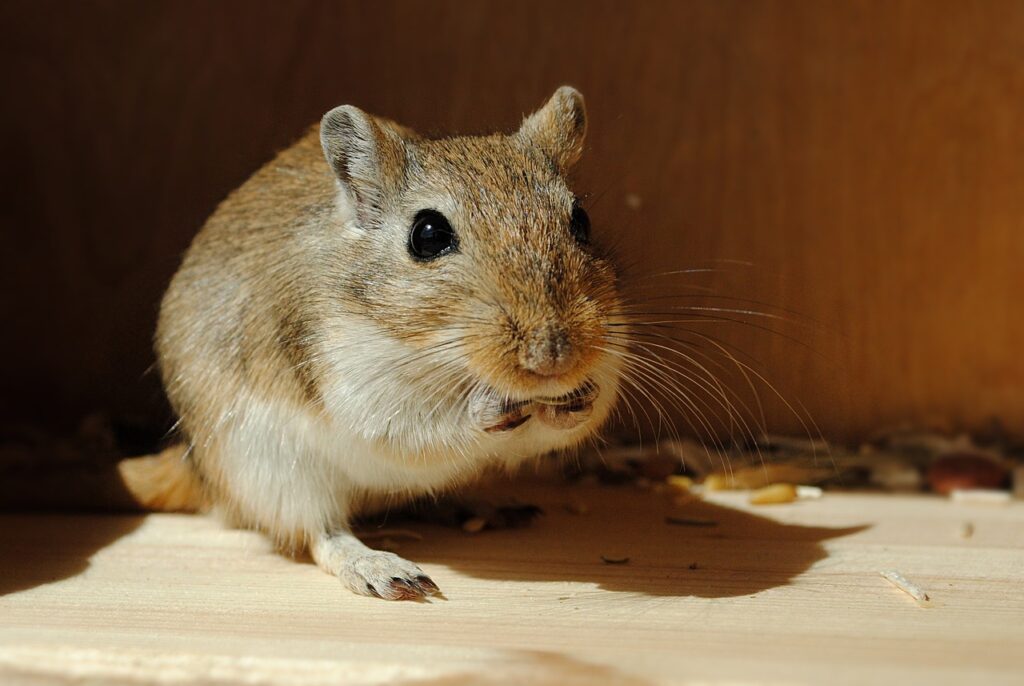Can Gerbils Eat Chestnuts?
Gerbils are adorable little creatures that make wonderful pets. As their owners, we always want to provide them with a nutritious and balanced diet to keep them healthy and happy. But when it comes to chestnuts, can gerbils enjoy this delicious treat? Let’s find out!
Health Boosts from Chestnuts for Gerbils
Chestnuts can provide some health benefits to gerbils when offered in moderation. These nuts are a great source of fiber, essential vitamins, and minerals. The fiber content aids in digestion and helps maintain a healthy digestive system. The vitamins and minerals present in chestnuts contribute to overall well-being and support various bodily functions in gerbils. However, it is important to remember that chestnuts should always be given as an occasional treat and not as a staple part of their diet.
Vitamins and Minerals
Chestnuts contain important vitamins such as vitamin C, vitamin B6, and vitamin E. Vitamin C helps support the gerbil’s immune system, keeping them protected from various illnesses. Vitamin B6 aids in metabolizing proteins and carbohydrates while promoting brain development. Vitamin E is a powerful antioxidant that protects the gerbil’s cells from damage caused by free radicals.
- Fiber-rich Treat
- Minerals for Vital Functions
Chestnuts are also rich in dietary fiber, which plays a crucial role in maintaining a healthy digestive system for gerbils. Fiber helps regulate bowel movements and prevents constipation, ensuring the gerbil’s overall well-being.
Chestnuts contain essential minerals like manganese, copper, and potassium. Manganese supports bone health and helps regulate blood sugar levels. Copper contributes to the formation of red blood cells and aids in iron absorption. Potassium is crucial for maintaining proper heart and muscle function.
Recommended Frequency and Quantity
When it comes to feeding chestnuts to gerbils, moderation is key. Due to their high fat content, chestnuts should only be offered as an occasional treat and not given daily. One to two small pieces of chestnut per week are sufficient to meet their nutritional needs and provide them with a delightful treat. Remember to remove any chestnut shells before feeding them to your gerbil, as the shells can pose a choking hazard.
Potential Cautions with Feeding Chestnuts
While chestnuts can make a tasty and nutritious treat for gerbils, there are some precautions to keep in mind. Gerbils have small digestive systems, and consuming large amounts of chestnuts can lead to gastrointestinal issues such as stomach upset, diarrhea, or even blockages. It’s essential to introduce chestnuts slowly and monitor your gerbil’s response. If you notice any adverse effects, discontinue feeding chestnuts immediately and consult a veterinarian.
Other Pets and Chestnuts
Chestnuts should be reserved for gerbils only. Other pets, such as dogs and cats, may also be attracted to the delicious smell of chestnuts, but these nuts may not be suitable for their digestive systems. It’s best to consult with a veterinarian before offering chestnuts to any other pets.
Conclusion
In conclusion, gerbils can enjoy the occasional treat of chestnuts. They offer several health benefits due to their fiber, vitamin, and mineral content. However, it’s important to remember that chestnuts should be given in moderation as an occasional treat, and any adverse reactions should be taken seriously. Always prioritize your gerbil’s well-being and consult a veterinarian if you have any concerns about their diet.



